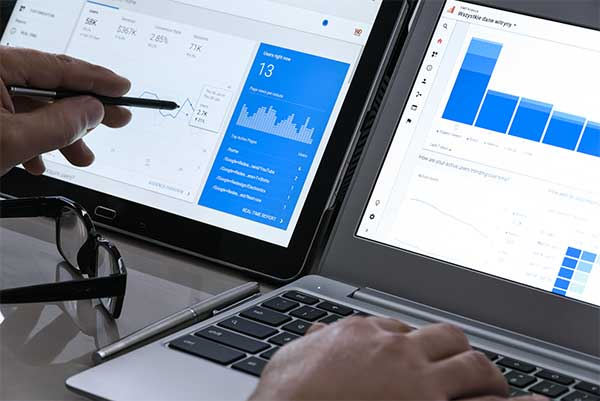A Beginner's Guide to Google Ads
In today's digital age, online advertising has become an indispensable tool for businesses to reach their target audience effectively. Google Ads, formerly known as Google AdWords, is one of the most powerful and widely used online advertising platforms. Whether you're a small business owner, an entrepreneur, or a marketer looking to promote products or services, understanding the basics of Google Ads can greatly enhance your online presence and drive meaningful results. In this comprehensive beginner's guide to Google ads, we'll walk you through the fundamental concepts and steps to get started with Google Ads.
What is Google Ads?
Google
Ads is an online advertising platform developed by Google that allows
businesses to create and display ads on Google's search engine results
pages (SERPs) and other affiliated websites. These ads appear when users
search for keywords relevant to the advertiser's offerings, ensuring
that your message reaches potential customers at the moment they're
actively looking for products or services like yours.
- Key Benefits of Google Ads
- Targeted Reach: Google Ads enables you to precisely target your audience based on factors such as location, demographics, interests, and device type. This ensures that your ads are displayed to the most relevant users, increasing the likelihood of conversion.
- Cost Control: With Google Ads, you have full control over your budget. You can set daily or monthly spending limits, and you only pay when users click on your ads (pay-per-click model), making it a cost-effective advertising solution.
- Measurable Results:
Google Ads provides detailed performance metrics, allowing you to track
clicks, impressions, conversions, and other key metrics. This data
helps you analyze the effectiveness of your campaigns and make informed
decisions. Hiring a digital marketing company in delhi can help in not only get the best results but also track the results for better optimization of google ads.
- Quick and Flexible: Unlike traditional advertising methods, Google Ads allows you to launch campaigns quickly and make real-time adjustments. You can pause, modify, or end campaigns as needed to optimize your results.
Getting Started with Google Ads
Create
a Google Ads Account: Visit the Google Ads website and sign in with
your Google account. If you don't have an account, you can easily create
one.
Campaign Setup:
a. Choose Your Campaign Goal: Google
Ads offers various campaign goals, such as website traffic, sales,
leads, or brand awareness. Select the goal that aligns with your
business objectives.
b. Select Campaign Type: Choose from
different campaign types, including Search, Display, Video, Shopping, or
App. For beginners, a Search campaign is a good starting point.
c. Define Targeting: Set
your targeting preferences, including location, language, demographics,
and device preferences. This ensures your ads are shown to the right
audience.
d. Keyword Research: Research relevant keywords
that potential customers might use to find your products or services.
Use Google's Keyword Planner tool to discover keywords and estimate
their search volume.
Visit: how to rank on Google Maps
- Ad Creation:
a. Write Compelling Ad Copy:
Craft concise and persuasive ad copy that highlights your offerings and
encourages users to click. Include relevant keywords in your ad copy
for better visibility.
b. Create Landing Pages: Design
landing pages that provide a seamless user experience and are aligned
with your ad's message. A well-designed landing page can significantly
impact your conversion rates.
c. Set Budget and Bidding:
Determine your budget and choose a bidding strategy. You can opt for
manual CPC (cost-per-click) bidding or automated bidding based on your
goals.
- Ad Extensions:
Enhance
your ads with extensions such as site link, callout, and structured
snippets. These extensions provide additional information and make your
ads more appealing to users.
- Ad Review and Approval:
Google
will review your ads to ensure they comply with their advertising
policies. This process typically takes a short amount of time, after
which your ads will start running.
- Monitor and Optimize:
Regularly
monitor your campaign's performance using Google Ads' reporting tools.
Analyze key metrics like click-through rate (CTR), conversion rate, and
return on ad spend (ROAS). Make data-driven optimizations to improve
your results over time.
Visit: how to measure digital marketing success
Best Practices for Success
- Keyword Relevance: Choose relevant keywords that align with your business and target audience. Focus on long-tail keywords for more specific targeting.
- Compelling Ad Copy: Craft engaging and clear ad copy that highlights the unique selling points of your products or services.
- Quality Landing Pages: Ensure your landing pages provide a seamless and relevant experience to users who click on your ads.
- Testing and Experimentation: Regularly test different ad variations, keywords, and targeting options to identify what works best for your audience.
- Conversion Tracking:
Implement conversion tracking to measure the success of your campaigns
and identify which keywords and ads drive the most valuable actions. The
best digital marketing agency in delhi can save you from the hassle of conversion tracking.
- Ad Schedule and Budget: Adjust your ad schedule based on when your target audience is most active online. Manage your budget effectively to maximize your advertising investment.
- Stay Updated: Google Ads is continually evolving. Stay informed about updates, new features, and industry trends to maintain a competitive edge.
Visit: tips for creating mobile first web experiences
In conclusion, Google Ads is a dynamic and versatile platform that can help businesses of all sizes achieve their online advertising goals. By understanding the basics outlined in this beginner's guide to google ads, you'll be well-equipped to create effective campaigns, reach your target audience, and drive meaningful results. Remember that success in online advertising often requires continuous learning, testing, and optimization. So, dive in, experiment, and watch your online presence flourish with Google Ads.






Comments
Post a Comment